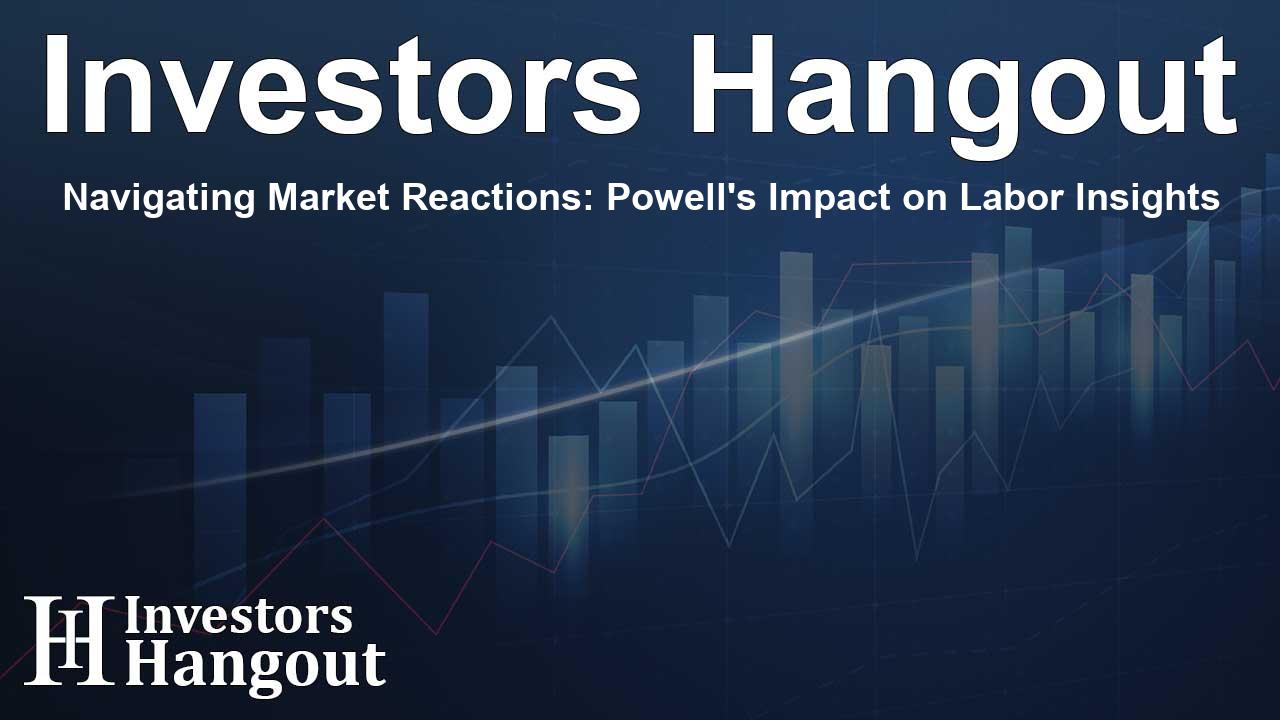Navigating Market Reactions: Powell's Impact on Labor Insights

Understanding the Jackson Hole Economic Symposium
The Jackson Hole Economic Symposium serves as a crucial backdrop where central bankers and economists converge to discuss global economic policies. Recently, a review of the FOMC minutes revealed steady foreign holdings of US assets, indicating a firm stance towards the dollar amid market turbulence. This stability suggests that while there are numerous global economic pressures, foreign investors remain committed to US-based assets, which plays a vital role in maintaining the dollar's strength.
As we await insights from Jerome Powell at Jackson Hole, the focus has shifted significantly towards the current labor market dynamics. The recent revisions presented in the FOMC minutes reflected concerning trends in job growth, leading to speculation whether Powell will acknowledge the possible fragility of the labor sector in his upcoming address. This growing attention to employment figures indicates a shift in focus for traders and policymakers alike, urging a reassessment of current labor-related strategies.
Economic data coming out ahead of Powell’s speech includes vital indicators such as jobless claims and existing home sales. While these reports are unlikely to set the market ablaze, they play a significant role in shaping trader sentiment leading up to the main event. The anticipation surrounding labor market data highlights how essential Powell’s perspective on these figures is expected to be in guiding future policy adjustments.
Traders' Perspectives on Powell's Upcoming Speech
Market participants understand that Jackson Hole is more than just a convention; it is a significant barometer for potential changes in monetary policy. Traders are keenly interested in whether Powell will signal a readiness to cut rates amidst shifting job market dynamics. The theme of this year’s event—“Labor Markets in Transition”—is particularly apt, given the recent disheartening payroll numbers and the reality that job growth is facing serious challenges.
Powell's acknowledgment of these challenges could serve to dovish sentiments in the market, providing room for potential rate cuts. Futures traders are already pricing in significant cuts for September, weighing the probabilities of 25bps versus 50bps reductions. Even though a drastic cut seems unlikely, traders expect Powell to present a message that leans towards dovish sentiment, which could solidify expectations for upcoming adjustments.
Global Economic Backdrop and Its Influence
Geopolitical factors, particularly surrounding Ukraine, have increasingly influenced market sentiment. Concerns over natural gas and oil prices rising sharply create a nuanced landscape where the dollar may strengthen, while European markets wrestle with their energy dependencies and economic recovery paths. Powell’s speech has the potential to resonate on a global scale, as he navigates discussions of economic policy amidst these persistent geopolitical tensions.
Investors are also attuned to the broader political landscape, with uncertainty surrounding the Fed’s direction amidst potential shifts in its governance. This complexity can impact market behavior significantly. Powell is aware that his words carry weight, particularly in light of history demonstrating how central bank communications can cause ripples across markets.
Final Thoughts Leading Into Jackson Hole
The importance of Powell’s upcoming address cannot be overstated. There are various potential scenarios unfolding, ranging from a strong dovish tone which could signal openness to rate cuts, to a more cautious approach that may keep traders guessing. Each of these scenarios can lead to vastly different market reactions.
Traders remain vigilant as they prepare for Powell's speech, understanding that even subtle changes in his language can drive significant market movements. The intersection of policy, labor market health, and global economic conditions will play a pivotal role in shaping the trading landscape in the weeks ahead.
Frequently Asked Questions
What is the significance of Jackson Hole for traders?
Jackson Hole is vital for traders as it provides insights into the Fed's monetary policy direction, especially through speeches from influential leaders like Powell.
What was the recent trend in the labor market indicated in the FOMC minutes?
The recent trend suggested a weakening labor market with disappointing payroll figures and revisions that raised concerns over solid job growth.
How might Powell’s speech impact the dollar?
If Powell signals a dovish tone, it may lead to dollar depreciation as traders adjust their expectations for future rate cuts.
What economic indicators are being monitored ahead of Jackson Hole?
Key indicators include jobless claims, existing home sales, and PMIs, which will shape market sentiment before Powell's address.
Why is geopolitical context important for markets right now?
Geopolitical tensions, especially related to energy markets, significantly affect economic conditions and market stability, influencing trader strategies.
About The Author
Contact Addison Perry privately here. Or send an email with ATTN: Addison Perry as the subject to contact@investorshangout.com.
About Investors Hangout
Investors Hangout is a leading online stock forum for financial discussion and learning, offering a wide range of free tools and resources. It draws in traders of all levels, who exchange market knowledge, investigate trading tactics, and keep an eye on industry developments in real time. Featuring financial articles, stock message boards, quotes, charts, company profiles, and live news updates. Through cooperative learning and a wealth of informational resources, it helps users from novices creating their first portfolios to experts honing their techniques. Join Investors Hangout today: https://investorshangout.com/
The content of this article is based on factual, publicly available information and does not represent legal, financial, or investment advice. Investors Hangout does not offer financial advice, and the author is not a licensed financial advisor. Consult a qualified advisor before making any financial or investment decisions based on this article. This article should not be considered advice to purchase, sell, or hold any securities or other investments. If any of the material provided here is inaccurate, please contact us for corrections.
